I’ve run the gamut of food options and I’ve eaten in every one of the succeeding styles, or a combination of them, at some point in the past seven years or so. I believe that everyone should try on different eating hats to find the one that suits, investigating the style that makes her feel the best and makes her body work the most efficiently. Oftentimes, though, the following dietary restrictions aren’t for experiment or trend, but truly a lifestyle choice or a medical necessity.School yourself on some common diet types:
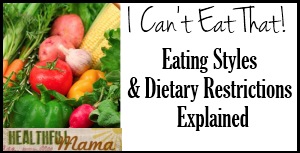 [pinit]
[pinit]
Dairy-Free
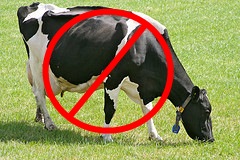 Definition: Diets which eliminate products made from cow’s milk, and in some cases, milk from other animals such as goats or sheep. This includes: milk, cheese, yogurt, ice cream, etc.
Definition: Diets which eliminate products made from cow’s milk, and in some cases, milk from other animals such as goats or sheep. This includes: milk, cheese, yogurt, ice cream, etc.
Why you should pay attention: Most adults cannot digest lactose, the sugar present in cow’s milk, but only the small percentage who exhibit allergy symptoms (cramping, headaches, diarrhea, to name a few) are labeled lactose-intolerant. (For me, acne, eczema, and sinus infections present themselves when I’ve had dairy.) Many breastfeeding moms eliminate dairy because it leads to acid reflux and colic in infants. Additionally, milk products are associated with many problems of the reproductive system.
Great Resources: Go Dairy Free, Healthful Mama 🙂 (Most of my recipes are dairy-free, as dairy is only seen in a few scenarios in our house: as goat cheese, yogurt, or on pizza!)
Gluten-Free
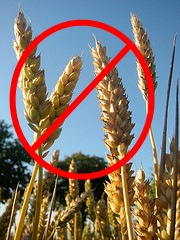 Definition: Gluten-free diets exclude the protein gluten, found in wheat, barley, rye, spelt, and other grains. I have often heard people say, “Oh, so you don’t eat bread or pasta,” when referencing gluten-free diet restrictions, not realizing how much gluten is added to processed foods and other grocery-store items, like condiments.
Definition: Gluten-free diets exclude the protein gluten, found in wheat, barley, rye, spelt, and other grains. I have often heard people say, “Oh, so you don’t eat bread or pasta,” when referencing gluten-free diet restrictions, not realizing how much gluten is added to processed foods and other grocery-store items, like condiments.
What you need to know: The majority of people on a gluten-free diet are treating Celiac Disease, a digestive condition that causes an immune reaction in the small intestine when gluten is present. Some contend that the prevalence of gluten allergies is not due to wheat, but what’s been done to wheat. The plant is unrecognizable from the ancient grains our ancestors would have eaten.
Great Resources: Gluten-Free Goddess, A Gluten-Free, Vegan Mom Who Knows, The Spunky Coconut
Nut-Free
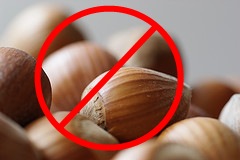 Definition:Nut-free diets restrict all types of nuts, mainly peanuts (a legume) and tree nuts which include, but are not limited to, walnut, almond, hazelnut, cashew, pistachio, macadamia, and Brazil nuts. While they can occur together, peanut allergies and tree nut allergies are generally two different sensitivities.
Definition:Nut-free diets restrict all types of nuts, mainly peanuts (a legume) and tree nuts which include, but are not limited to, walnut, almond, hazelnut, cashew, pistachio, macadamia, and Brazil nuts. While they can occur together, peanut allergies and tree nut allergies are generally two different sensitivities.
Why it’s important: Those with nut allergies can experience severe reactions from difficulty breathing to intense vomiting. Many processed foods can contain traces of nuts or nut oils if processed in the same facility as nuts.
Great Resource: Nut-Free Mom
Paleo/Primal
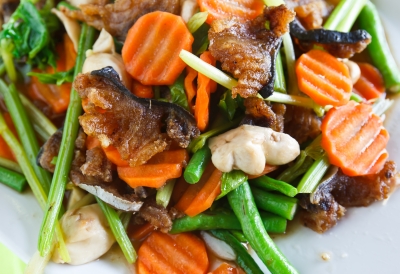 Definition: A food style based on the concept of hunter-gatherer, paleo focuses on unprocessed foods: meat, eggs, seafood, vegetables,fruit, nuts and seeds.
Definition: A food style based on the concept of hunter-gatherer, paleo focuses on unprocessed foods: meat, eggs, seafood, vegetables,fruit, nuts and seeds.
Why: Paleo supporters maintain that the human body was designed for consuming the foods mentioned above–before the dawn of modern agriculture. Many have seen significant results in health and weight loss through the paleo/primal way of eating.
Great Resources: Everyday Paleo, Mark’s Daily Apple
Raw
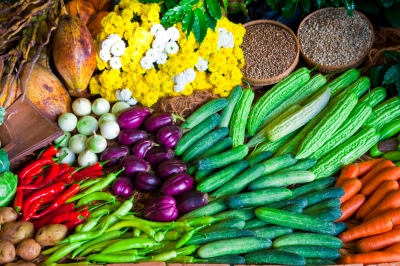 Definition: Raw-foodists typically consume a vegan diet of vegetables, fruits, seeds, and nuts in a raw (or cooked under 130°) state.
Definition: Raw-foodists typically consume a vegan diet of vegetables, fruits, seeds, and nuts in a raw (or cooked under 130°) state.
Why Raw?: The phyto-nutrients (the disease-fighting, energy-building, ass-kicking, natural elements) of food are destroyed when the food is cooked. Simply put, a raw diet provides your body with more nutrition bite for bite.
Great Resources: Kristen’s Raw, Cleanse America, Doug McNish
Sugar-Free
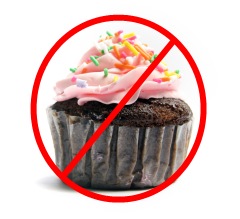 Definition: We’re not talking sugar-free, sugar-substitutes here. The “new” sugar-free means eliminating refined sugars or added sugars.
Definition: We’re not talking sugar-free, sugar-substitutes here. The “new” sugar-free means eliminating refined sugars or added sugars.
What you need to know: Sugar is toxic to the body. Like dairy, it is difficult for the body to digest and leads to inflammation, and, consequently, a host of health problems.
Great Resource: Simply Sugar & Gluten-Free
Vegan
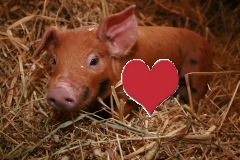 Definition: Vegans do not eat any food (and some do not support any product) which contains animal by-products. This means no: animal flesh of any kind, dairy products, eggs, fish, and honey, and hidden ingredients like gelatin and casein.
Definition: Vegans do not eat any food (and some do not support any product) which contains animal by-products. This means no: animal flesh of any kind, dairy products, eggs, fish, and honey, and hidden ingredients like gelatin and casein.
Why: Most vegans choose veganism due to personal beliefs, but there is research that shows that plant-based diets are better for the body (and the planet!), too. I chose a vegan diet after learning about the factory farming practices in the U.S. (See Compassion Over Killing for more info.)
Great Resources: Bryant Terry, Oh! She Glows!, VegNews, VegWeb
Unprocessed/Whole Food
 Definition: An unprocessed diet is very simple: real, whole foods that don’t come in a box or package. Whole grains, lots of fruits and vegetables, and grass-fed/pastured animal meats are at the forefront.
Definition: An unprocessed diet is very simple: real, whole foods that don’t come in a box or package. Whole grains, lots of fruits and vegetables, and grass-fed/pastured animal meats are at the forefront.
Why: Unprocessed is all about knowing what’s in your food, eliminating unnecessary additives, and freeing yourself from corporate marketing tactics.
Great Resources: Healthful Mama, Eating Rules, 100 Days of Real Food.
I hope you’ll investigate each of these diets and perhaps give them a try! Two books worth mentioning are The Mood Cure, which discusses the connections between diet and emotions, and Food and Healing, which outlines many of the philosophies about food to which I adhere. You may also want to check out titles such as: Food, Inc., In Defense of Food, The China Study, and Forks Over Knives.
I’d love to hear feedback! Do you live by a particular type of diet? Also, please let me know of any other sites or resources which you feel should be added to this list!

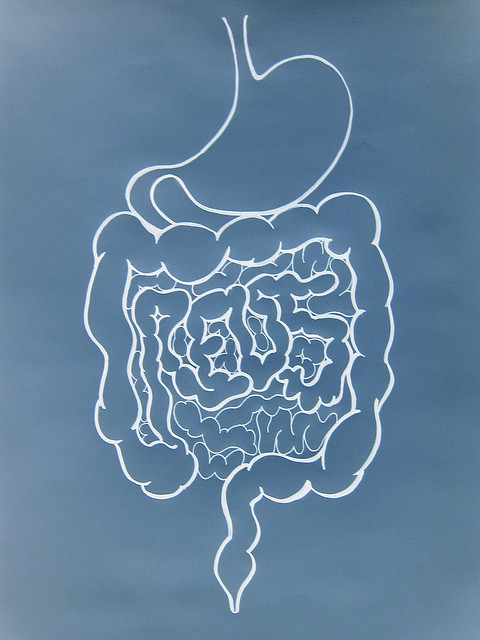
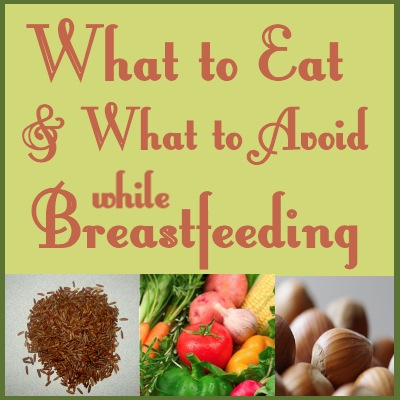
I eat a real food and flexiterian diet for the most part. I sometimes eat organic processed food but most of my diet is unprocessed and low meat. Of course due to allergies I avoid nuts, peanuts, and mushrooms (which is a life threatening allergy).
Lisa, I am the same in that we eat real food and in a flexitarian fashion. I wanted to make this guide because I don’t think people understand why, when a person says, “I can’t eat that,” it might not be a flippant diet fad, but a real cause for concern, such as in the case of allergies, like you mentioned.